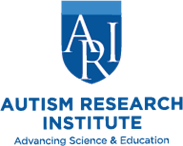10/2/2019 – A study from the University of Missouri adds to evidence that behavior problems in children with autism spectrum disorders (ASD) can be an indication of gastrointestinal (GI) distress.
Bradley Ferguson and colleagues analyzed records from 340 children and adolescents with ASD. The researchers found that 65% of the individuals experienced constipation, nearly half experienced stomach pain, nearly 30% experienced diarrhea, and 23% experienced nausea. They also detected an association between some GI problems and behavioral issues such as anxiety and aggression.

Ferguson comments, “We are starting to better understand how gastrointestinal issues coincide with problem behaviors in ASD. For example, we found that individuals with autism and co-occurring nausea were about 11% more likely to display aggressive behaviors. Therefore, addressing the nausea might alleviate the aggressive behaviors which will ultimately increase the quality of life for the patient as well as their family.”
The researchers also discovered differences between younger and older children with ASD. For instance, aggressive behavior in very young children was associated with upper GI issues such as nausea and stomach pains, while anxiety in older children and teens was associated with lower GI issues such as constipation and diarrhea.
Ferguson says, “These findings further highlight the importance of treating gastrointestinal issues in autism. Many children and adolescents with autism spectrum disorder are often unable to verbally communicate their discomfort, which can lead to problem behavior as a means of communicating their discomfort.”
This article also appears in Autism Research Review International, Vol. 33, No. 3, 2019
“The relationship among gastrointestinal symptoms, problem behaviors, and internalizing symptoms in children and adolescents with autism spectrum disorder,” Bradley J. Ferguson, Kristen Dovgan, Nicole Takahashi, and David Q. Beversdorf, Frontiers in Psychiatry, April 9, 2019 (free online). Email
—and—
“Problem behaviors could provide clues on health challenges for children, adolescents with autism,” news release, University of Missouri, June 27, 2019.
Microbiota therapy may lead to lasting beneficial changes in the gut health of children with autism
Microbiota transfer therapy (MTT) may lead to long-term improvements in the gut health of children with autism spectrum disorders (ASD), according to a recent study by Khemlal Nirmalkar and colleagues at
Co-Occurring Conditions and Autism
Research suggests that individuals with autism experience some conditions―including underlying medical issues, neurodevelopmental differences, and mental health issues―more frequently than the general population. Learning about these potential medical needs can help you
More evidence of GI issues reported in kids with ASD
A new study adds to evidence that gastrointestinal (GI) symptoms are common in children with autism spectrum disorders (ASD) and can contribute to behavior, sleep, and attention problems. Bibiana Restrepo and
Interoception Is Impaired in Children, but not Adults, with Autism
10-2-2019 -- A new study suggests that children, but not adults, with autism spectrum disorders (ASD) have impairments in interoception. Interoception is the ability to sense the internal state of the body—for
Research on Microbiota Transfer Therapy in Patients with ASD
Dr. Rosa Krajmalnik-Brown, Ph.D., discusses her recent studies on gut microbiota in individuals with autism who have gastrointestinal (GI) problems. She outlines what we know about human microbiomes, how they interact with our bodies,
Helminths as a Cause or a Potential Treatment for Autism?
Work in our laboratory has focused on immune function in the gut for more than a decade. Recently, our attention has turned to helminths, intestinal worms, which appear to be extremely important







